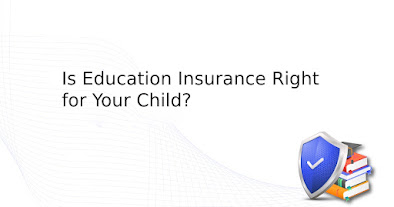Is Education Insurance Right for Your Child?
As a parent, you want to ensure your child has every opportunity to succeed, and education plays a crucial role in that. With the ever-rising cost of education, many parents consider education insurance as a way to safeguard their child's future. But is it the right choice for everyone?
What is Education Insurance?
Education insurance is a type of education insurance
policy designed to help cover the cost of your child's future education.
You pay premiums over a set period, and the insurer guarantees a payout at a
specific time, usually when your child reaches college age.
Benefits of Education
Insurance:
· Financial Security: Education insurance provides a guaranteed sum
to help cover education expenses, even if you are no longer around.
· Disciplined Savings: Regular premium payments instill a habit of
saving and financial planning.
· Tax Advantages: In some countries, education insurance premiums may be tax-deductible
Things to Consider:
· Cost: Education insurance can be expensive, and the long-term
commitment may not be suitable for everyone's budget.
· Market Fluctuations: The returns might not keep pace with the
rising cost of education, potentially leaving a funding gap.
· Alternatives: Investing in other financial instruments like mutual funds or stocks might offer potentially higher returns, but also carry greater risk.
Before making a decision,
consider these factors:
· Your financial situation: Can you comfortably afford the premiums?
· Your child's age: Starting earlier allows more time for the
policy to accumulate value.
· Your risk tolerance: Are you comfortable with the potential for
lower returns compared to other investment options?
· Education goals: Consider the type of education you envision
for your child and the associated costs.
Conclusion
Education insurance can be a valuable tool for planning your
child's future education. However, it's crucial to carefully weigh the benefits
and drawbacks, considering your individual circumstances and exploring
alternative options. Consulting a financial advisor can help you make an
informed decision that aligns with your financial goals and risk tolerance.




Comments
Post a Comment